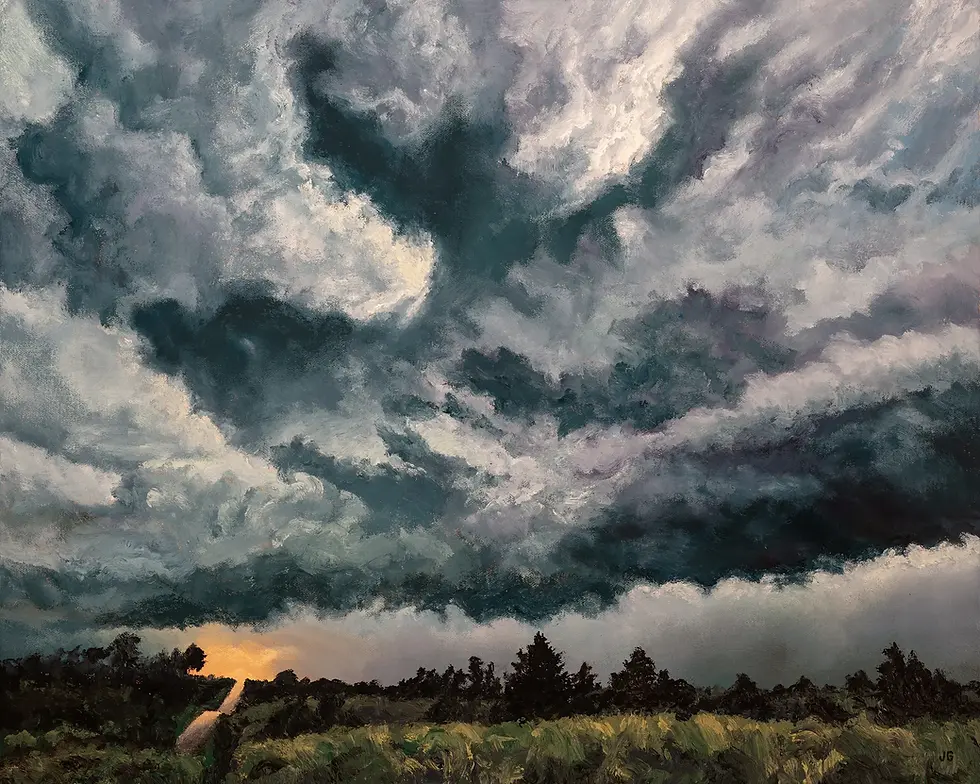Descriptions and process
- Colin Fleming

- Apr 12, 2020
- 3 min read
Sunday 4/12/20
Story descriptions from a letter this morning to an editor who was offered these stories. Touched up "Big Bob and Little Bob," though there was not much to do--cosmetic things. But I did alter "Evening Day" a goodly amount. I'm pleased with where it ended up.
"One is a unique Christmas story, of sorts--so perhaps it would be a December issue kind of thing--called "Cooks For You All," the title coming from the human-sounding notes of a barred owl. The story is a kind of transliteration of Schubert's Winter Journey--though one need not be a classical music buff at all, given the context in which the story unfurls--and the Gift of the Magi, via a broken man, an escort in desperation, a pizza joint, a bit of Rimbaud, the the idea of having a hospital book--that is, a volume one brings each time a hospital visit is required and it had worked out favorably the time before.
"Then there is "The Day Louis Armstrong Lost His Color," in which the celebrated trumpeter, in 1935, wakes up in NYC on the morning he has a prestigious gig at Carnegie Hall to discover that he's no longer black--he's a white guy. Black musicians didn't play Carnegie Hall at the time for the most part. He's with his then wife, Alpha, and he's unsure what to do if his color does not return by the evening. As you may know, I write on jazz a lot, and I had some fun with the historical details, bringing history to life, in a way, but also via a form of magical realism and social commentary. Josh Gibson, the Negro League star, has a cameo, as well as Colin Clive, who played Doctor Frankenstein in Bride of Frankenstein, which was all the rage in NYC at this time period.
""Big Bob and Little Bob," I think, will surprise you. It really seems to affect everyone who reads it. The story is about two men named Bob, of contrasting sizes, who live in a small, enclosed neighborhood in the 1980s. One is a classical pianist with an autistic younger daughter, the other is a Civil War buff with a college-aged daughter who is going to die of a bone disease, but is getting married anyway. The narrator is the son of another family who has the Bobs and their families over for game nights, and vice versa. The autistic child is close to the Bob who is not her father, and when his own child is gone--after having gotten married and been gifted the MG car of the narrator's father--there is an incident let us say. I think it's as honest a story about the mechanics of friendship as there has been. How time, environment, the blows of life, impact friendship, shape it.
"Finally, there is "Evening Day." The story opens in a grammar school, with two good friends, Kylie and Frances, on their knees under their desks. It is, we gather, morning, but it is pitch dark outside. Time has dissolved in some ways, leaves blow and hit against the windows as though they are rocks. I have thought often about time in the moment of a tragedy, of what the brain knows, how thoughts function, the sped-up-internal temporality of death as it occurs, or almost occurs, in this case, for one of these girls. We view time too rigidly, as a kind of math with little flexibility; that's external time, though, which is different from internal time. This story goes inside of an explosion, if you will. What we never learn about, later, when we read about a tragedy like a gas explosion, because, obviously, there are not witnesses who might describe to us how that fraction of a second really unfolds, in internal time, as maybe an hour, days, a lifetime. In some ways, this is a story that overlaps with real life events from not that long ago, but my setting is a school. I think it's a frightening story, especially as we find out what is happening, and as the truth of what is happening is delayed, stretched out, and also a moving story about the sacrifices we never learn about, because, of course, how could we, when they are of this nature?"
Last night I went back into the ongoing "Green Glass Door." I knew I was going to change the opening and the first sentence would be different. Was too sexual an opening before, also one that would be limiting in that context/placement. So, the new beginning was found, stuff was cut to be used later on--working better with placement and context--and the rest will be figured out as I go along. Sometimes the opening just comes from below and it gets moved up.





Comments